FM condemns Priština efforts to scupper UN agreement
FM Vuk Jeremić called on EU officials to oppose Priština's efforts to block the Belgrade-UN agreement on restructuring the international presence in Kosovo.
Thursday, 13.11.2008.
09:25

FM Vuk Jeremic called on EU officials to oppose Pristina's efforts to block the Belgrade-UN agreement on restructuring the international presence in Kosovo. "After months of hard talks, the agreement between Serbia and the UN on a number of issues of crucial importance for the survival of the Serb people in Kosovo was reached," Jeremic said in a lecture at Charles University in Prague today. FM condemns Pristina efforts to scupper UN agreement “The agreement, which was supposed to legalize the European Union Rule of Law Mission in Kosovo (EULEX), was explicitly backed by all UN member states concerned about the issue of Kosovo’s future status,“ Jeremic said. “EULEX needs the UN Security Council’s approval to be status neutral, to be deployed under UN jurisdiction and to be in line with UN SC Resolution 1244,“ he continued. “However, after Serbia and the UN reached an agreement on the role of the EU mission in Kosovo, having seen it as a major blow to their secessionist ambitions, the Kosovo Albanian authorities renewed their threats of violence and terror,“ said the minister. "Instead of saying that such barbarian threats would no longer be tolerated, a session of the UN Security Council was canceled and the UN Secretary-General’s report was withheld from publication," said Jeremic. He said that now was the moment the EU should finally stand up and say to the extremists in Pristina that their rejection of laws would not be tolerated and that their threats would not be accepted. Jeremic said that decisions taken in the next few days would be decisive. B92 Pristina continues to oppose 6-point plan Talks continued yesterday night between Kosovo leaders and international officials over the six points of the EULEX deployment, though no agreement was reached. Kosovo President Fatmir Sejdiu and Prime Minister Hashim Thaci met in Pristina with representatives of the Contact Group member-states—minus Russia—and with EU Special Representative to Kosovo Pieter Feith. Sources close to the talks told Pristina media that no agreement had been reached and that the Kosovo side remained adamant that it would not accept the six-point plan agreed on between the UN and Belgrade. The same sources say that Kosovo institution leaders stated that “the core of the six-point plan comprises Belgrade’s conditions for deploying EULEX in Kosovo.“ Kosovo officials have opposed the agreement reached between Belgrade and the UN. Details of that agreement have yet to be published. The six-point proposal is part of the plan for reconfiguring the international civil presence in Kosovo, and pertains to the police, judiciary, customs, borders, protection of cultural and religious buildings, as well as traffic and telecommunications in the province. Agreement was reached between UN Secretary General Ban Ki-moon and the Serbian side at the beginning of last week. “Serbia welcomes EULEX’s presence in Kosovo provided EULEX respects the principle of neutrality and provided that decision is taken by the UN Security Council,“ said President Boris Tadic yesterday. However, the agreement does not suit the Kosovo Albanians, who rejected it on Monday. As a result, the Kosovo government is under pressure currently from Brussels and New York to soften its position in order to reach a compromise. Thaci, however, said in Pristina yesterday that he continued to oppose the six-point plan. “Kosovo works closely with the relevant international officials with a view to finding a solution that respects Kosovo’s independence, her sovereignty, the constitution of our republic, the document of President Ahtisaari and Kosovo’s territorial integrity. Pristina will not be pressured. This process is still open. Belgrade can propose what it wants, but Belgrade’s dream of undermining Kosovo’s sovereignty died and was laid to rest on February 17 this year,“ he underlined. However, Pristina media unofficially report that the Kosovo government has begun wilting under international pressure to accept the plan. According to daily Koha Ditore, Pristina is now setting forth its conditions for accepting the plan. November 14 is the date being touted for the next Security Council session to discuss the EULEX deployment.
FM condemns Priština efforts to scupper UN agreement
“The agreement, which was supposed to legalize the European Union Rule of Law Mission in Kosovo (EULEX), was explicitly backed by all UN member states concerned about the issue of Kosovo’s future status,“ Jeremić said.“EULEX needs the UN Security Council’s approval to be status neutral, to be deployed under UN jurisdiction and to be in line with UN SC Resolution 1244,“ he continued.
“However, after Serbia and the UN reached an agreement on the role of the EU mission in Kosovo, having seen it as a major blow to their secessionist ambitions, the Kosovo Albanian authorities renewed their threats of violence and terror,“ said the minister.
"Instead of saying that such barbarian threats would no longer be tolerated, a session of the UN Security Council was canceled and the UN Secretary-General’s report was withheld from publication," said Jeremić.
He said that now was the moment the EU should finally stand up and say to the extremists in Priština that their rejection of laws would not be tolerated and that their threats would not be accepted.
Jeremić said that decisions taken in the next few days would be decisive.
Priština continues to oppose 6-point plan
Talks continued yesterday night between Kosovo leaders and international officials over the six points of the EULEX deployment, though no agreement was reached.Kosovo President Fatmir Sejdiu and Prime Minister Hashim Thaci met in Priština with representatives of the Contact Group member-states—minus Russia—and with EU Special Representative to Kosovo Pieter Feith.
Sources close to the talks told Priština media that no agreement had been reached and that the Kosovo side remained adamant that it would not accept the six-point plan agreed on between the UN and Belgrade.
The same sources say that Kosovo institution leaders stated that “the core of the six-point plan comprises Belgrade’s conditions for deploying EULEX in Kosovo.“
Kosovo officials have opposed the agreement reached between Belgrade and the UN.
Details of that agreement have yet to be published.
The six-point proposal is part of the plan for reconfiguring the international civil presence in Kosovo, and pertains to the police, judiciary, customs, borders, protection of cultural and religious buildings, as well as traffic and telecommunications in the province.
Agreement was reached between UN Secretary General Ban Ki-moon and the Serbian side at the beginning of last week.
“Serbia welcomes EULEX’s presence in Kosovo provided EULEX respects the principle of neutrality and provided that decision is taken by the UN Security Council,“ said President Boris Tadić yesterday.
However, the agreement does not suit the Kosovo Albanians, who rejected it on Monday.
As a result, the Kosovo government is under pressure currently from Brussels and New York to soften its position in order to reach a compromise.
Thaci, however, said in Priština yesterday that he continued to oppose the six-point plan.
“Kosovo works closely with the relevant international officials with a view to finding a solution that respects Kosovo’s independence, her sovereignty, the constitution of our republic, the document of President Ahtisaari and Kosovo’s territorial integrity. Priština will not be pressured. This process is still open. Belgrade can propose what it wants, but Belgrade’s dream of undermining Kosovo’s sovereignty died and was laid to rest on February 17 this year,“ he underlined.
However, Priština media unofficially report that the Kosovo government has begun wilting under international pressure to accept the plan.
According to daily Koha Ditore, Priština is now setting forth its conditions for accepting the plan.
November 14 is the date being touted for the next Security Council session to discuss the EULEX deployment.
















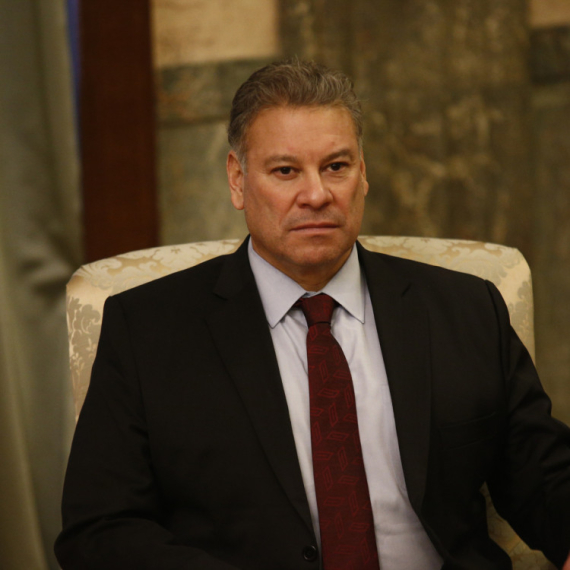















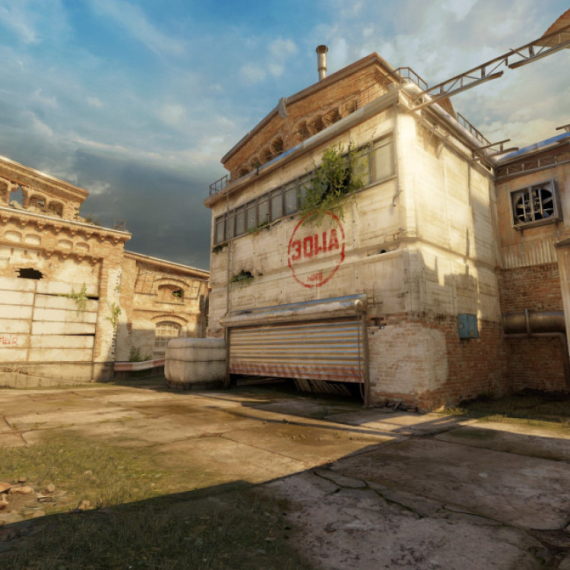




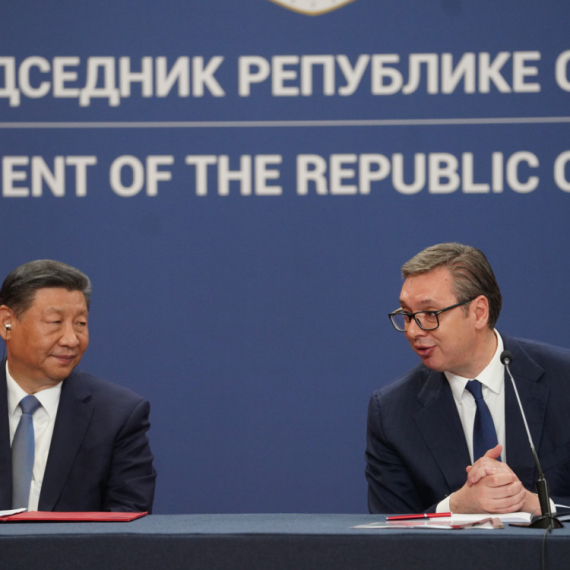



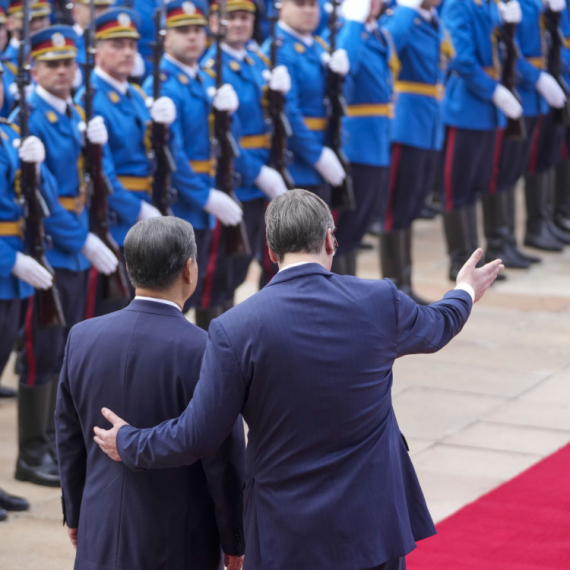














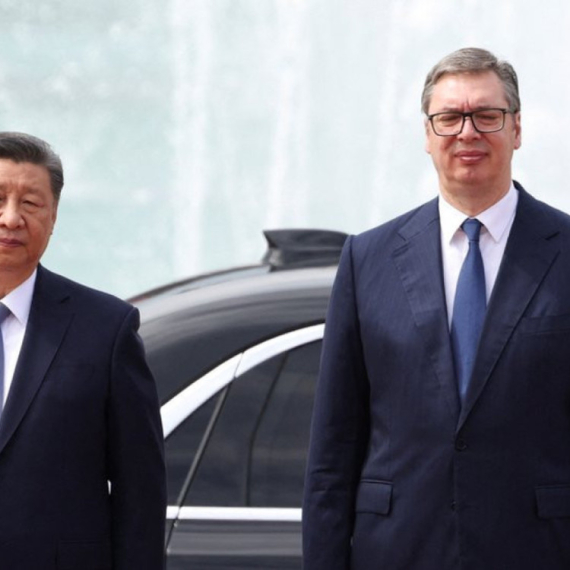

Komentari 68
Pogledaj komentare